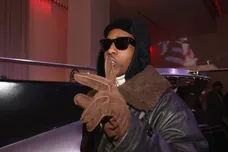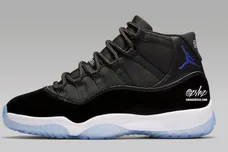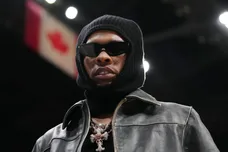With all the excitement that surrounded J. Cole’s new album 4 Your Eyez Only, there was also some controversy that unsued in the days after it’s release as well.
ICYMI, producers Vinylz & Boi-1da called out producer Foreign Tek for his work on Cole’s “Déjà Vu” instrumental, which they felt was stolen from their work on Bryson Tiller’s “Exchange” smash. However, Tek claims that’s not the case & he created the beat on his own. Both of the tracks share the similarity of the sample of K.P. and Envyi's 1998 track “Swing My Way,” so the confusion could’ve easily been mistaken.
So what did J. Cole’s camp think of all the "Deja Vu" drama? It wasn’t much of their concern really. In an interview with Billboard, producer & Dreamville manager, Ibrahim "Ib" Hamad explained their decision to use “Deja Vu” for the album, despite all the similarities to Bryson Tiller’s record.
“I wouldn’t say there was any hesitation because I felt like it’s just two totally different songs. We had already made 'Déjà Vu,' like that song was literally made for his last album [2014 Forest Hills Drive] and we just knew it would fit better because of the story he wanted to tell on the album,” Hamad said. “Cole had already made the song, so when Bryson’s album came out and we heard it, it was a feeling like, ‘Damn, he used the same sample.’ But to Cole, it don’t matter. He’s not competing with Bryson. What Bryson’s song did was incredible, and to Cole, it was like, ‘It’s a part of the story I want to tell, so I’m gonna use [the beat].’ We didn’t really know the backstory at the time of what happened with Vinylz and Boi1da and [ForeignTeck] who made the beat. That was none of our concern.”
Hamad also told Billboard that the first two leaks from the documentary, “False Prophets” and “Everybody Dies,” were originally intended to be on the album, but didn’t make the final cut because Jermaine didn’t believe they went with the project’s story.
“The album was initially like 13, 14 songs and then just at the last second, we kind of were like, ‘Look, if we’re trying to tell a story, let’s just make it as clear as possible and cut it down to that.’ So when we cut out ‘False Prophets’ and ‘Everybody Dies,’ it really hurt,” Hamad said. “[…] We really wanted [the songs] on the album and it was like we still wanted people to hear it but we didn’t want to put the music out because we knew it wasn’t a real representation of the album.”
Read the full interview with Billboard here.









